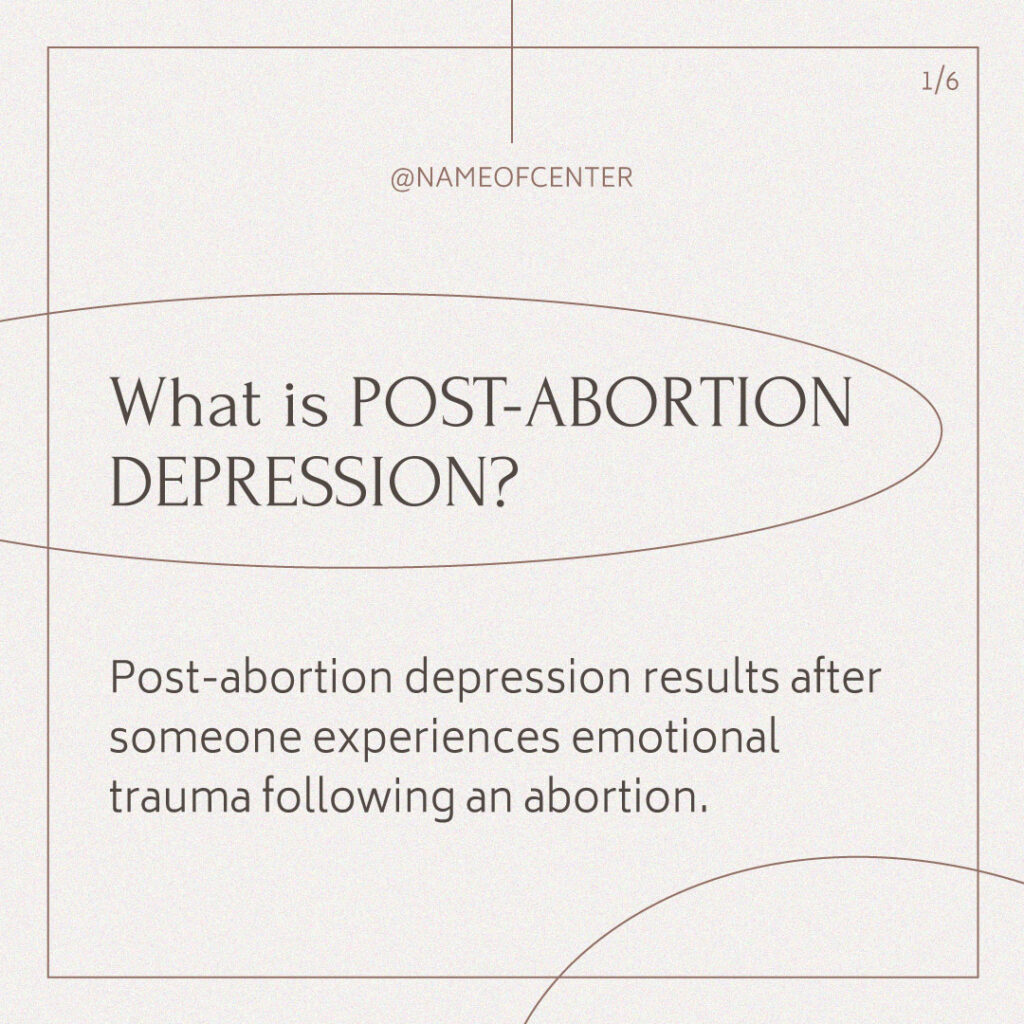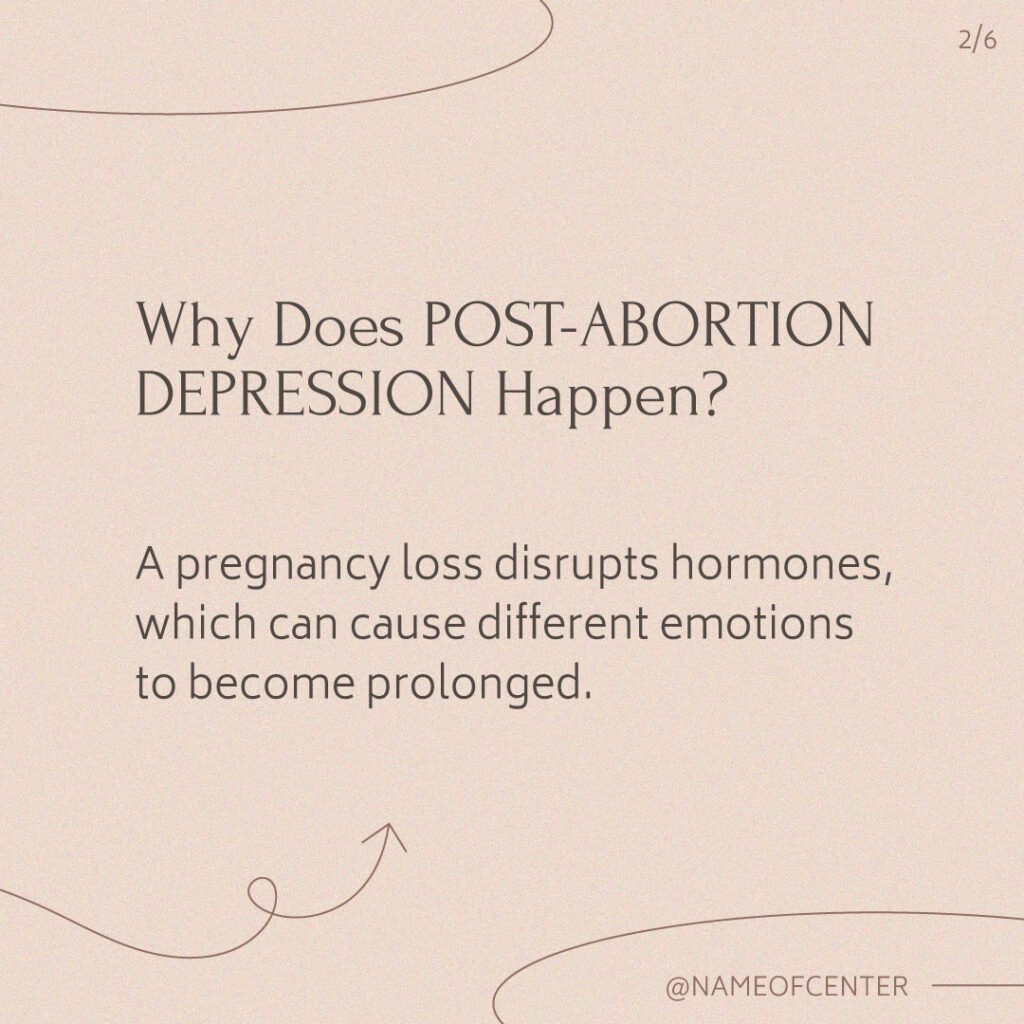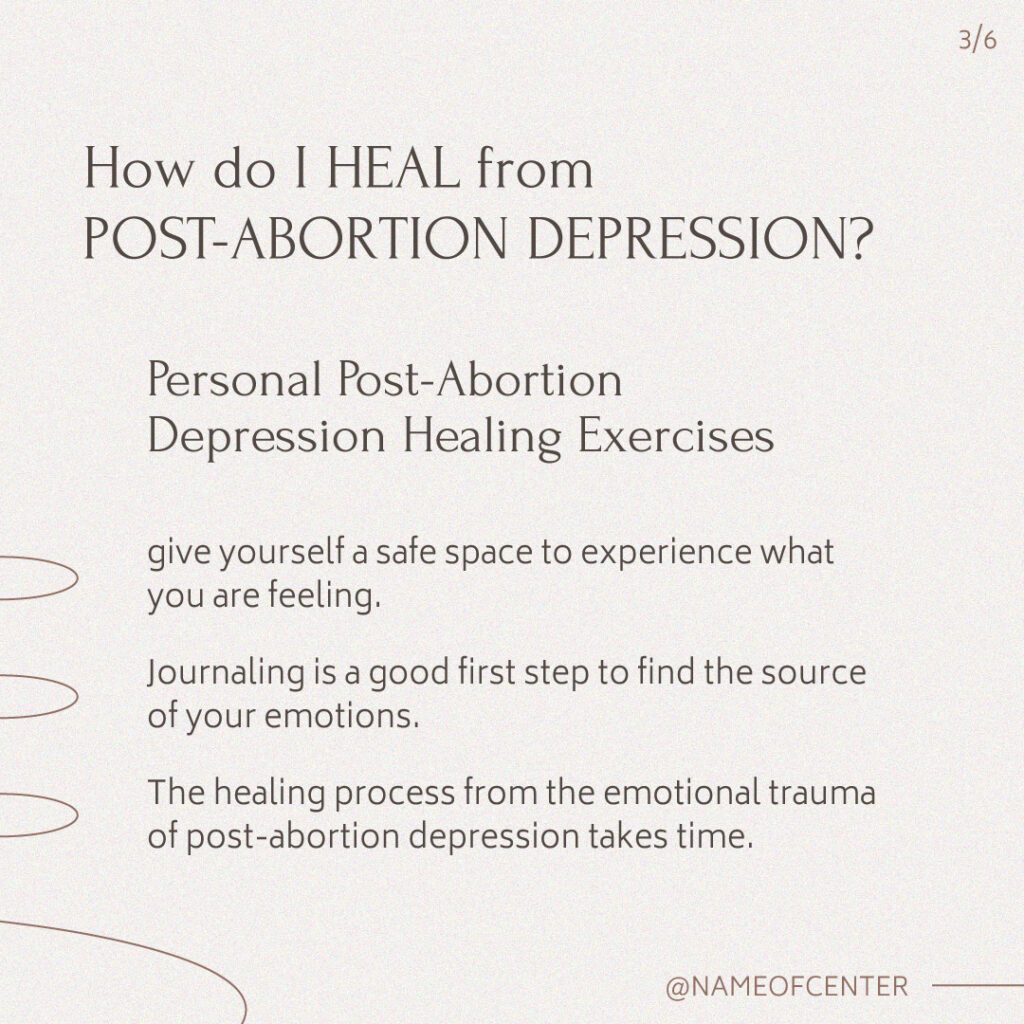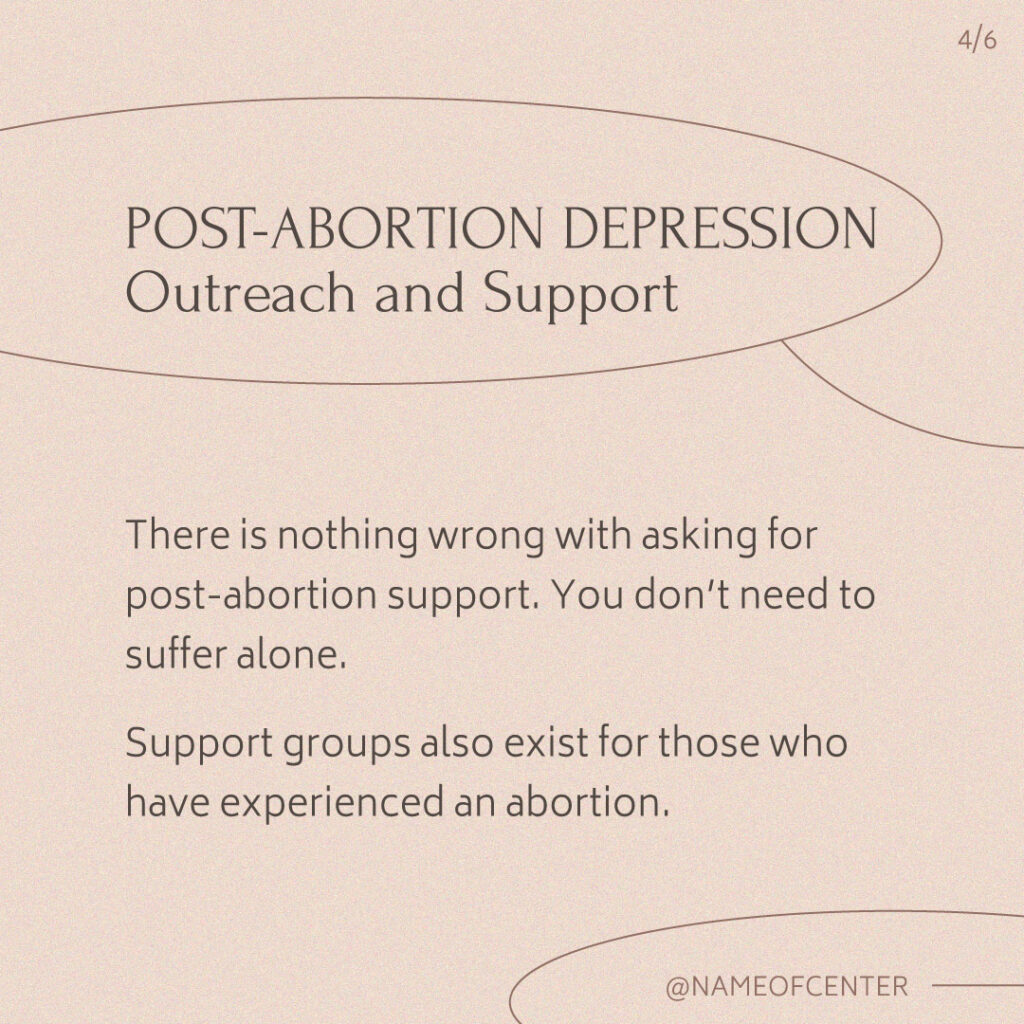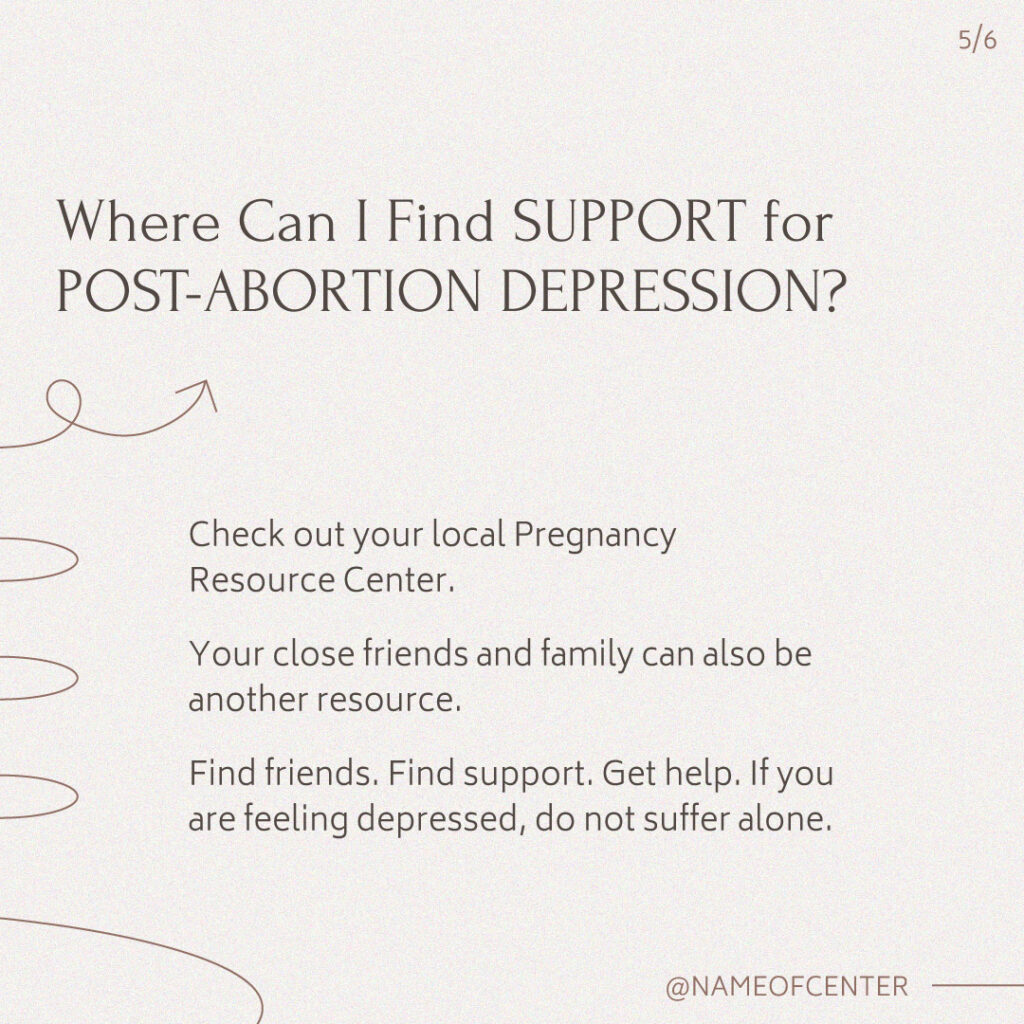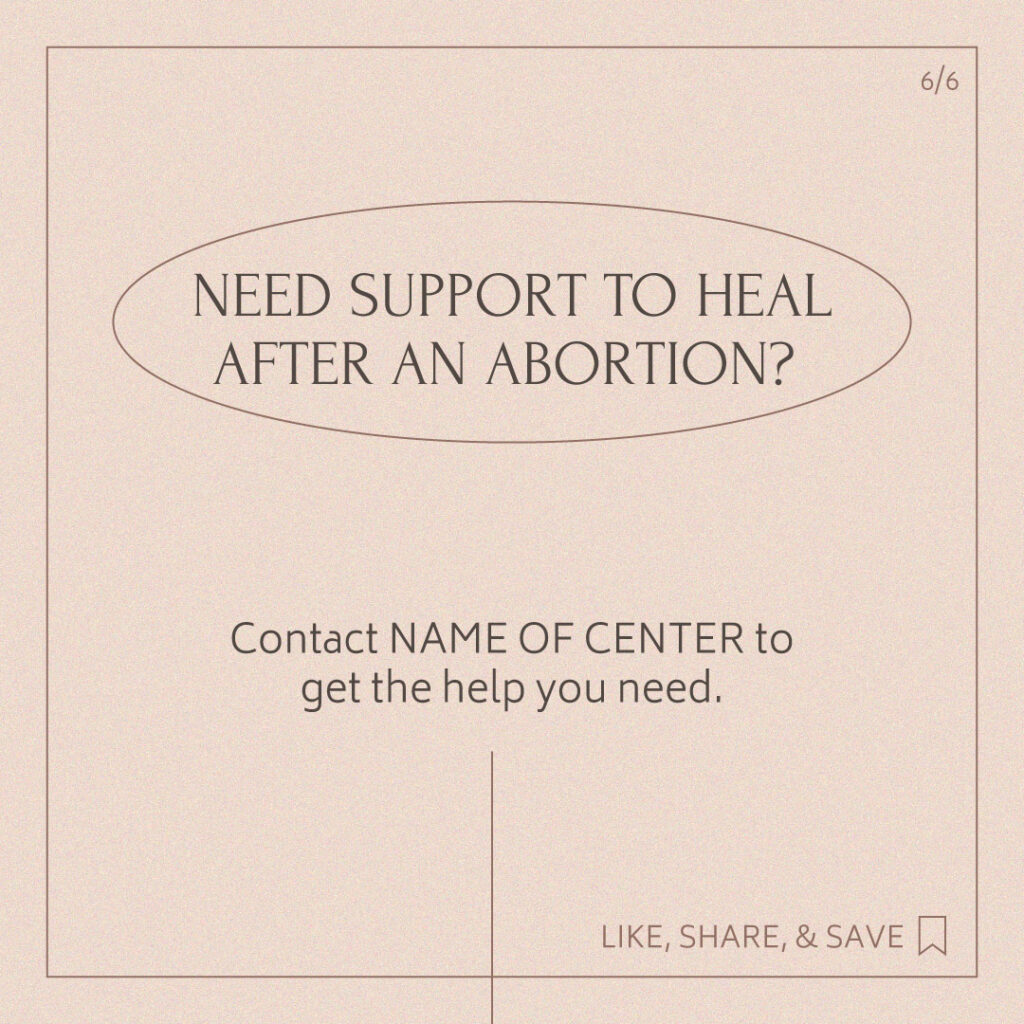Healing from Post-Abortion Depression
She didn’t usually feel like this. Sluggish and unmotivated, like it took effort to even breathe. Her eyelids were heavy. Sleep never came anymore. Everyone was worried about her and wondered what was going on. She couldn’t tell them. She couldn’t bring herself to explain that she felt like part of her was missing, like she had become unanchored and nothing in life mattered anymore. So she tried to forget about it all. About the pregnancy. About the abortion. About the shame and pain and grief that now trailed behind her everywhere she went. Hannah had post-abortion depression. And she needed help.
What is Post-Abortion Depression?
Post-abortion depression results after someone experiences emotional trauma following an abortion. Post-abortion depression looks different for everyone. It often includes symptoms like a lack of motivation and inability to eat or sleep. Symptoms can also include anxiety, feelings of sadness and detachment. Women may experience recurring flashbacks of the abortion. Post-abortive men can also feel depressed, and there are resources available to them.
“Just as the reasons for having an abortion differ, so can the person’s emotional response to the procedure. This can range from relief, calm, and happiness to sadness, grief, loss, and regret, depending on the individual’s situation. If negative feelings are severe and persistent, they could be a sign of depression.” (1).
In the aftermath of abortion, women can often find themselves hit with the following symptoms. They may have to navigate tidal waves of emotion. Oftentimes they will feel extreme anger towards themselves or others. Abortion stress can cause shame or guilt. Women may even experience feelings of numbness. Women may often feel alone or isolated, dealing with the pain of abortion on their own. They may have trouble connecting with people and being around others.
Though there is no scientific consensus on a link between depression and abortion, there are many reports that point to a connection (2). Post-abortion depression can completely disrupt a person’s life.
Why Does Post-Abortion Depression Happen?
There are a few reasons Post-Abortion Depression could occur. A pregnancy loss disrupts hormones, which can cause different emotions to become prolonged.
“Pregnancy loss for any reason can disrupt your hormone cycle, potentially causing negative feelings,” Gabrielle explains. “It’s possible to feel both profoundly impacted and relieved at the same time. An entire spectrum of feelings, from relief to traumatic stress, is normal.” (3).
A person could feel a particular social stigma or lack of support following an abortion, which can lead to depression. Oftentimes abortion regret or feelings of guilt can affect a woman after the pregnancy loss. Without effective coping skills, a person can become overwhelmed by these prolonged emotions.
If a woman felt pressured into an abortion, the chances of her experiencing post-abortion depression are significantly higher. Likewise, if she does not have a strong social support system, she will have a harder time healing (2). In cases where a woman had a preexisting mental health condition, the chances of her dealing with depression increase, as well (3).
Are You Feeling Depressed?
Come talk to us.
NAME OF CENTER
We can help.
How do I Heal from Post-Abortion Depression?
Hannah did not have to go through the pain of her abortion alone. Instead of talking to someone, finding community, or opening up, she decided to ignore it, to make it go away.
The thing is, her abortion struggle didn’t go away on its own.
“It just eats away at you, especially if you don’t deal with it.” This is a quote from Micki, another woman who tried to ignore her past abortion. Micki began her healing process years after the effects of abortion. She says that sharing her abortion experience is difficult, but also healing.
To read more about Micki’s story, click here.
Personal Post-Abortion Depression Healing Exercises
The most important step of healing is to give yourself a safe space to experience what you are feeling. Give yourself permission, whether you are feeling grief, relief, or a mixture of many different things. Your feelings are important and valid.
Journaling is a good first step to find the source of your emotions. Why are you feeling this way? To explore these feelings, you may benefit from the help of a counselor. Post-abortion therapy will help you manage your difficult emotions.
The healing process from the emotional trauma of post-abortion depression takes time. Recovery will be different for everyone. Experiencing an intense range of emotions directly after an abortion is normal. However, if you’re experiencing the emotions for a long time after the abortion, it may be cause to seek expert help. If your struggle is interfering with your ability to do normal activities, that’s another sign you need healing.
Post-Abortion Depression Outreach and Support
There is nothing wrong with asking for post-abortion support. You don’t need to suffer alone. Talk to a trusted friend or family member, or seek help with a local pregnancy resource center. There, mental health professionals can provide a non-judgmental environment. Most abortion healing courses are led by women who have experienced an abortion themselves. These courses are almost always free, as well. They can also connect you with community resources available for you to use for support after abortion.
Support groups also exist for those who have experienced an abortion. Your local PRC can help you get involved with these abortion support groups. Meeting with a monthly support group can help you with the process of restoration. Others have lived through these same struggles. You may find that advice of other people will help you as well.
Where Can I Find Support for Post-Abortion Depression?
There are many public resources you can use for post-abortion healing. Hannah did not need to keep her feelings to herself. She did not need to experience the pain following an abortion on her own. There are many different ways for those who need support to find a safe place.
Check out your local Pregnancy Resource Center. There, they can help connect you with abortion recovery programs and counselors who can help. These resources will help you learn how to move on from abortion.
Your close friends and family can also be another resource. Telling your story will help you navigate your painful post-abortion emotions. By giving yourself permission to talk to someone, you allow an outlet for yourself to process emotional pain.
Find friends. Find support. Get help. If you are feeling depressed, do not suffer alone. There are people in your community who are willing and able to be a shoulder to lean on. A person to count on. A community to rely on.
Need Some Support?
Let us help.
NAME OF CENTER
We have resources available for you.
Sources
Hannah’s story is an aggregate of many womens’ stories.
- Drake, Kimberly. (2022, July 24). Coping with Grief and Depression after an Abortion. Psych Central. https://rb.gy/cake55
- Raypole, Crystal. (2020, June 11). What's the Deal with Post-Abortion Syndrome? Healthline.
https://www.healthline.com/health/post-abortion-syndrome#post-abortion-feelings - Reardon, D.C. (2018) The Abortion and Mental Health Controversy: A Comprehenive Literature Review of Common Ground Agreements, Disagreements, Actionable Recommendations, and Research Opportunities. SAGE Open Med, 6(205031211880762).


